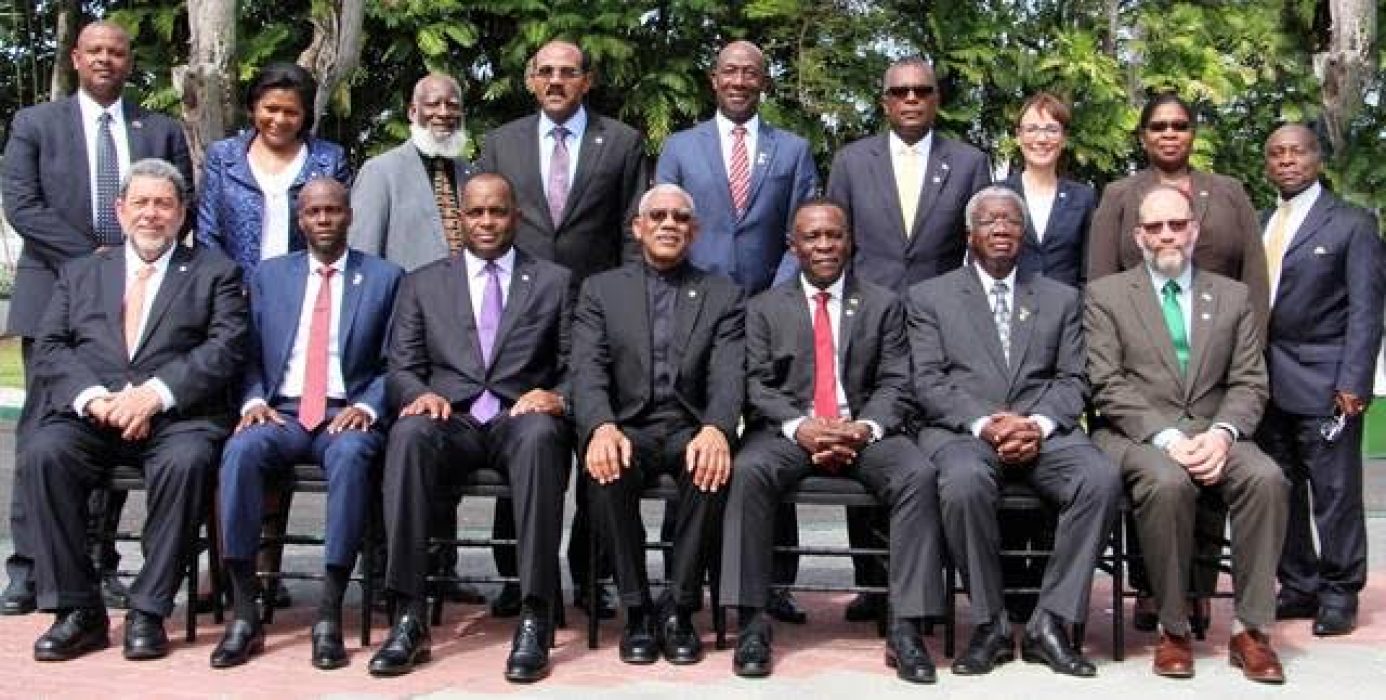Chairman of the Conference of Heads of Government of the Caribbean Community (CARICOM) His Excellency David Granger, President of Guyana, said on Thursday that the spirit of Chaguaramas was not “the ghost or ‘jumbie’ of a dead project”.
Rather, it was the “vital breath of life that inspires us to intensify regional integration”, he said in reference to the Community’s founding Treaty of Chaguaramas.
The President was at the time addressing the opening ceremony of the two-day Twenty-Eighth Intersessional Meeting of the CARICOM Heads of Government at the Marriott Hotel in Georgetown, Guyana.
“The Treaty of Chaguaramas was a response to the challenges of the post-colonial era. The Revised Treaty of Chaguaramas was the response to the post-Cold War era, a time of increasing trade liberalisation and the growth of regional organisations,” the President said.
He pointed to the Community’s Founding Fathers’ quest to protect the emergent new states from the “perils of economic marginalisation at a time when regional integration communities such as the European Economic Community (EEC), the Latin American Free Trade Association (LAFTA), the Central American Common Market and the emerging East-African Economic Community, had taken root.
 “The four founding fathers – Barbados’s Errol Barrow, Guyana’s Forbes Burnham, Jamaica’s Michael Manley and Trinidad and Tobago’s Eric Williams – who brought forth the Caribbean Community forty-four years ago, were men of discernment and determination. They were the courageous pioneers of the future. They were not craven prisoners of the past,” the President said.
“The four founding fathers – Barbados’s Errol Barrow, Guyana’s Forbes Burnham, Jamaica’s Michael Manley and Trinidad and Tobago’s Eric Williams – who brought forth the Caribbean Community forty-four years ago, were men of discernment and determination. They were the courageous pioneers of the future. They were not craven prisoners of the past,” the President said.
“The world-wide trends were clear – integrate or disintegrate; combine or collapse; merge or be submerged in a sea of strife.
The Founding Fathers, President Granger said, recognised that, given the deformed character of colonial economies and the small size of regional markets, integration would allow for a larger and safer market and for a louder, stronger voice in negotiating with other countries and regions.
“The ‘Founding Fathers’ had the inspiration to see the need for integration and the motivation to establish this great movement. They have entrusted the happiness of our citizens and the prosperity of our Community to our hands.
“We are, today, the trustees of this legacy. We must bequeath to our progeny a more prosperous region than we inherited from our progenitors,” he said.
The Community’ pillars are economic integration, foreign policy coordination, human and social development and security collaboration. The Intersessional Meeting will place special emphasis on the CARICOM Single Market and Economy (CSME) under the broader heading of economic development, regional security and international relations. Correspondent banking, movement towards the Single Information and Communication Technology (ICT) Space, and tourism are among the other matters the Heads of Government will discuss.


